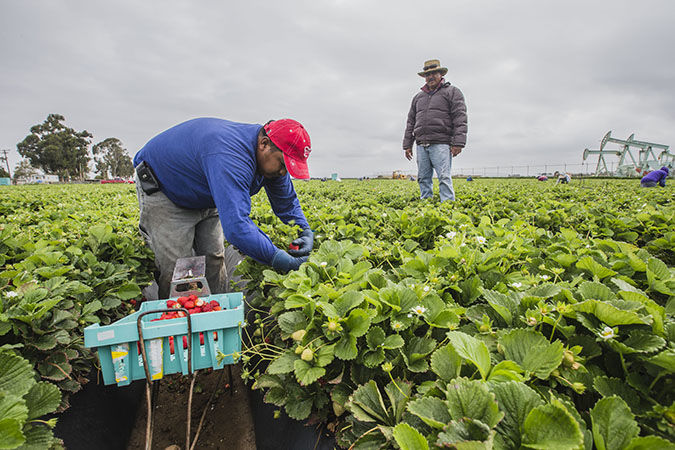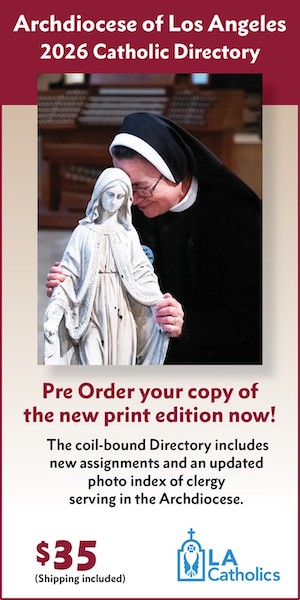In a recent audience, Pope Francis said: “In speaking about a serious, honest person, the most beautiful thing that can be said is: ‘He or she is a worker,’ one who works.”
The pope went on to talk about how human labor is part of God’s intention for creation from the beginning. Work, he said, “is proper to the human person. It expresses the dignity of being created in the image of God. Thus, it is said that work is sacred.”
The pope’s words are good to think about as we look ahead to Labor Day on Sept. 7 and as we continue our reflections on the spirituality of work that I began in my column last week.
The Gospels say that Jesus worked for most of his adult life — until he was about 30 — as a carpenter, just like his earthly “father.”
In fact, Jesus was so identified with his humble profession that when he began to preach, his neighbors were amazed. They couldn’t believe this man they knew “only” as a carpenter could be speaking with such authority.
In his teaching, Jesus often used examples from the world of work, industry and finance, especially in his parables. He talked about farmers sowing seeds and taking in the harvest, about workers and their wages, tenants and landlords, talents and investments, debts and interest payments.
Jesus spoke in a language that people understood, a language that he himself understood from his years practicing his profession. And Jesus’ first followers were small business owners.
Peter and his brother Andrew were commercial fishermen — successful enough, according to the gospels, to own several boats and to employ several men. St. Paul earned his living as a tent-maker. Among Paul’s early converts was Lydia, a prosperous and prominent businesswoman, a silk merchant.
Jesus revealed that human work is essential to human dignity and to the meaning of our lives in God’s plan.
The first man and woman were blessed and given a job to do — to cultivate and care for the world that God gave them.
And the Scriptures teach that through the work we do we are called to continue God’s own work in the world — to build up his family on earth and to reflect his love and glory in our lives.
Pope Francis says: “The beauty of the earth and the dignity of work were made to be united. The two go together: the earth becomes beautiful when it is worked by man.”
We work to provide for our families. Also, we work so that we will have something to give to our brothers and sisters in need.
But God wants our work to also be a kind of worship — an offering of love to God, a way we give him thanks and praise. St. Paul used to say, “Whatever you do, do all for the glory of God.”
The Gospel of work that we find in the Scriptures and in the teachings of Jesus is expressed most beautifully in the Eucharist.
In the prayers the priest prays at the Mass, we acknowledge that bread and wine are both the work of human hands and the gift of God’s creation. So we offer these gifts to God in thanksgiving and for the praise and glory of his name.
All our work, in a certain sense, should be like this, should be “eucharistic.” We should offer what we do to God — for his glory and the service of our neighbors.
That means our work should always be done with love and with an attitude of prayer — “Work and pray,” as St. Benedict used to teach.
All our work — even the smallest and least noticeable tasks we do during the day — can be a “labor of love.” All it takes is to do our work with the right intention — to do all for the glory of God and the service of others. As Blessed Mother Teresa used to say, we should try to “do something beautiful for God” in everything we do.
Through our work, God entrusts us with the awesome privilege of sharing and advancing his work of creation and Christ’s work of salvation.
So this week, as we celebrate Labor Day, let us ask for the grace to make all our work a labor of love for God and for our neighbor.
Let’s continue also to pray for Pope Francis and the success of his pastoral visit to the United States later this month.
And let us ask our Blessed Mother Mary, who worked in the home of the Holy Family at Nazareth, to give us all a new appreciation for the Gospel of work.
You can follow Archbishop Gomez daily via Facebook, Twitter and Instagram.

